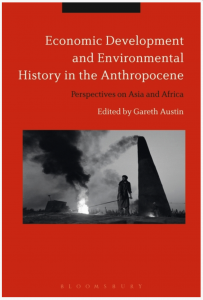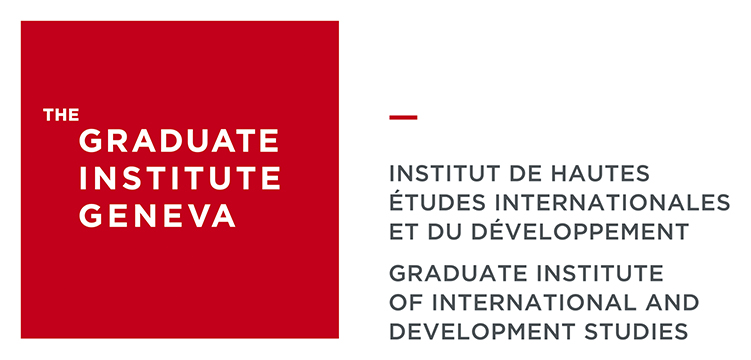Economic Development in the Anthropocene: Perspectives on Asia and Africa
26 – 27 September 2014
Convener:
Professor Gareth Austin (IHEID, International history)
Please click here see the programme.
Please click here for the photo gallary!
Conference Report
This year’s annual Pierre du Bois Conference, co-organised and hosted by the Graduate Institute of International and Development Studies and the Fondation Pierre du Bois pour l’histoire du temps présent, provided a unique opportunity for a diverse pool of international scholars to exchange and develop ideas on the impact of economic development on the environment. The theme of the two-day conference was “Economic Development in the Anthropocene: Perspectives on Asia and Africa.”
The era that began with the Industrial Revolution is now often referred to as the Anthropocene in recognition of the role that human activity, especially economic and population growth, has come to play in changing the natural environment. For many social scientists, the advent of the Anthropocene has in many ways blurred the lines between the study of human history and the environment.
As famously stated by Friedrich Engels, “Let us not, however, flatter ourselves overmuch on account of our human victories over nature. For each such victory nature takes its revenge on us.” Since its popularisation by the atmospheric chemist and Nobel laureate Paul Crutzen, the term Anthropocene has been used to mark the era in which the human impact on the environment has become a recognisable force. Despite the many conceptual differences and methodological obstacles, the renowned team of economic historians, geographers and sociologists was able to make inroads into defining the geo-economic parameters of the Anthropocene.
Given that industrialisation begun in Europe and North America over two centuries ago, the conference investigated if, and to what extent, economic development in parts of Asia and Africa followed the Western exploitation of nature for the sake of increasing prosperity, followed by a gradual shift towards environmental conservation. With Asia and Africa currently experiencing the most rapid urbanisation in the world, the conference analysed the implications of struggles over diminishing natural resources and how these could be compared to similar economic development patterns of the Industrial Age.
The conference managed to bring together a broad range of interests and perspectives. The diverse pool of eminent social scientists from universities in Switzerland, Sweden, the United States, Britain, Japan and Portugal represented a unique blend of economic, social and environmental historians. The two days of panels were grouped around the following themes:Perspectives on and from the Late Holocene, East Asia in Long-Term Global Perspective, South Asia, Southeast Asia and Sub-Saharan Africa, Recent Choices in East Asia and a Global View.
The first session of the conference was devoted primarily to defining and articulating the conceptual boundaries of the Anthropocene. The opening panel discussed the human impact on the environment in the period 1500-1800 with presenters introducing geographical factors to the conceptual parameters. Acknowledging the disciplinary boundaries of history and geography, it was questioned if the term Anthropocene should even be used in the first place. Using a number of broad cases studies from Africa and East Asia, the panellists investigated the greater human impact on the environment and its historical consequences.
The mandate of the second session was essentially to place the impact of economic development on the environment in a long-term global perspective. Natural resources and environmental sustainability were juxtaposed with the debates on the Great Divergence, and more specifically, on how paths of industrialisation in East Asia differed from the availability and exploitation of resources in the West. Much attention was also devoted to the importance of credible historical data, quantifying the impact of human agency on the environment. Ultimately, the session was able to conclude that the success of global industrialisation was, and remains, the main threat to environmental sustainability.
The first afternoon session focused solely on South Asia and its association with the Anthropocene in the 19th and 20th century. Both of the presenters discussed the emergence of fossil-fuel-based economies in Monsoon Asia. Industrialisation was linked to biodiversity loss and the emergence of “hydraulic empires.” Connecting environmental and financial history, new evidence on rural banking systems and their seasonal fluctuations during monsoons was presented.
The final session of the first day took up the theme of Southeast Asia and Sub-Saharan Africa. The presenters discussed the commodification of natural resources and the rents associated with resource extraction. Using very different approaches and evidence, the two presenters investigated the environmental constraints and opportunities of resource-based economies in Asian and African economic history. Additionally, and perhaps most importantly, the panellists and discussants engaged in a lively debate on the connections between capitalism, the history of industrialisation and the Anthropocene.
For many the highlight of the conference, the final day ended with a public roundtable focussing on economic development and environmental change in Asia and Africa, the two major world regions left behind in economic terms by the ‘Great Divergence’ associated with the industrial revolution during the late 19th century. Although some parts of Asia have already caught up with the West, and parts of Africa are aspiring to do the same, different paths of economic development are still leading to similar patterns of environmental degradation. Approaching the discussion with cautious optimism, Kenneth Pomeranz, Kaoru Sugihara and Julia Ardeney Thomas used a wide variety of arguments and evidence to stress the importance of learning about environmental conservation from mistakes made in global economic history.
The first session of the final day featured two case studies of 20th century industrialisation in East Asia. The Japanese case for energy-intensive industry was presented as a key to the rapid growth of the manufacturing sector. The subsequent rise in energy-demand was accommodated by a significant shift to energy conservation through government efficiency standards and incentives. The second paper presented a study of South Korea’s nuclear energy industry. The relatively late process of industrialisation was made possible with the help of cheap capital, and most, importantly cheap energy as provided by the nuclear energy sector.
The second session presented a set of findings on the relationship between economic growth, population dynamics, and the management of global land use. A number of possible policy solutions were discussed, showing how different public and private stakeholders could possibly engage in the conservation of land resources. The presenters concluded that global economic growth and increasing land use pose many complicated issues for governments struggling to manage their depleting resources in an efficient and socially just development strategy.
The final session of the conference took on an epistemological theme, trying to find a balance between social and natural sciences in defining the threats caused by climate change. The presentation emphasised that natural and social sciences still remain within their separate domains and are unable to explain how human-dominated ecosystems have emerged from interactions between human and ecological processes. It was however contended that despite disciplinary boundaries and ambitious economic development goals around the word, all ecosystems are threatened by human-induced climate change.
In summary, the conference recognised that economic development in Asia and Africa has led to a huge mobilisation of natural resources, resulting in multiple threats to environmental, economic and social stability. The environmental impact of economic development in Asia and Africa has largely mirrored that of industrialisation in the West, resulting in significant increases in energy demand and depletion of natural resource. The Anthropocene has opened up many new scientific and economic policy debates, forcing social scientists to rethink human-environmental relations. The conference was deemed a great success by all participants, organisers and collaborating organisations. Most importantly, the conference served as a catalyst for a number of exciting research collaborations, which will advance our understanding of the economic development impact on the environment.
* Conference Report authored by: Mariusz Lukasiewicz, International History, IHEID
The conference resulted in following publication.
 Economic Development and Environmental History in the Anthropocene. Perspectives on Asia and Africa
Economic Development and Environmental History in the Anthropocene. Perspectives on Asia and Africa



